I spent a refreshing weekend (4-6 April 2025) with agritech millennial entrepreneurs near Chilka lake in Odisha. My friend Venky of Agri Business Matters facilitated this gathering and had invited me to engage with them on the topic of ethics.
The place
Something about the space first. Odisha is one of my favourite parts of the country and Chilka lake region 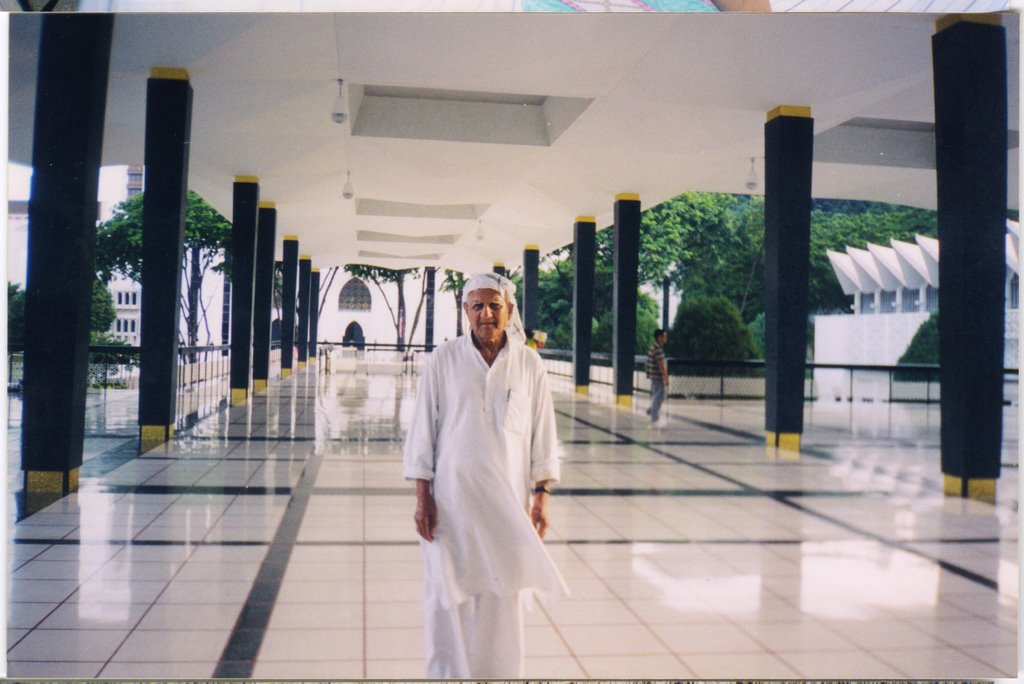 was beautiful as well with a long history and tradition. With over 1000 sq.km. area, it is the largest brackish water lagoon and the second largest coastal lagoon in the world according to wiki. It is connected through folklore, history, commerce, and culture with the identity of Odisha. Along with Tamil Nadu, Andhra and Bengal, Odisha remains one of the most powerful maritime community in the east coast that has not been adequately studied for it is knowledge of the sea, trade and commerce connectivity and influence across the Indian Ocean. In my first visit to Malaysia nearly 20 years ago, I was amazed to find that Indians for a long time were referred to Kalingas in the Malay country. There is a beautiful mosque in Malaysia called the Capitan Kalinga Mosque that I had visited with the Gandhian historian Dharampal.
was beautiful as well with a long history and tradition. With over 1000 sq.km. area, it is the largest brackish water lagoon and the second largest coastal lagoon in the world according to wiki. It is connected through folklore, history, commerce, and culture with the identity of Odisha. Along with Tamil Nadu, Andhra and Bengal, Odisha remains one of the most powerful maritime community in the east coast that has not been adequately studied for it is knowledge of the sea, trade and commerce connectivity and influence across the Indian Ocean. In my first visit to Malaysia nearly 20 years ago, I was amazed to find that Indians for a long time were referred to Kalingas in the Malay country. There is a beautiful mosque in Malaysia called the Capitan Kalinga Mosque that I had visited with the Gandhian historian Dharampal.
A large lake with historic significance for trade and commerce is an ideal setting for the gathering (though we didn't spend enough time to learn about the people, commerce culture, or the historical significance of the place, that is part of the epistemic challenge I have about being in such a gathering). We had stayed in a tourist resort space that was walking distance from the lake and provided for a warm and friendly organization. The young staff were all from Odisha or Bengal and had the warmth of hospitality that Odiya people are known for.
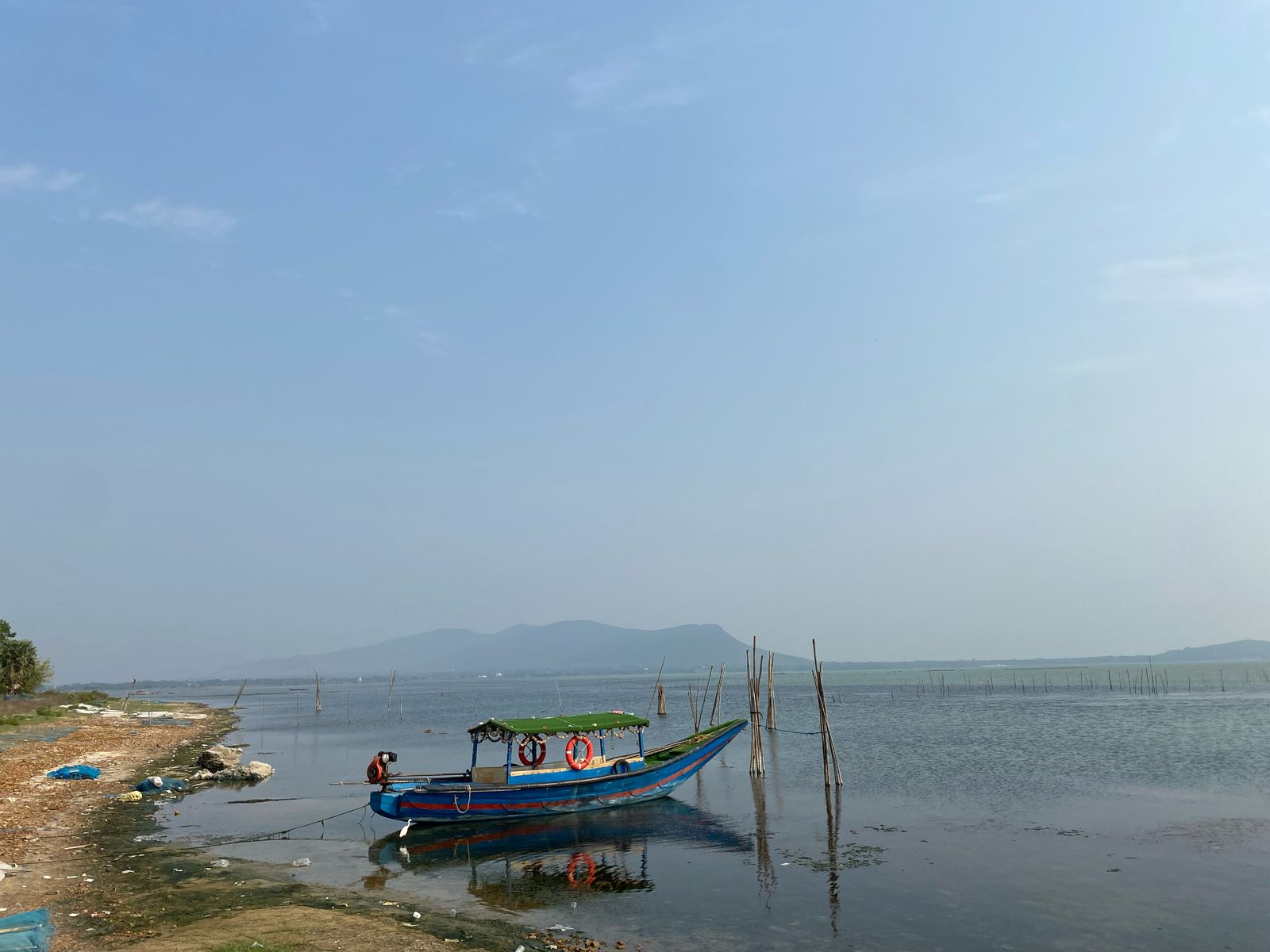
The Gathering
A few things I observed about the AgriTech Entrepreneurs first -
They don’t carry the baggage of colonial knowledge awe from previous generations
nor the conservative wisdom of traditional Indian business
Most are good in articulating, switching over to their native language whenever they found themselves short of words (English knowledge did not have an intimidating presence it used to have in such spaces with a previous generation)
There were a privileged few, many middle-class first gen, and some from farming and farm produce trading families
Engineering / financial / management education dominated. To my surprise there were a few lawyers. My forever cribbing of course was the absence of anyone from a humanities background
Many introduced themselves as couple started enterprise, though only 5% were women participants
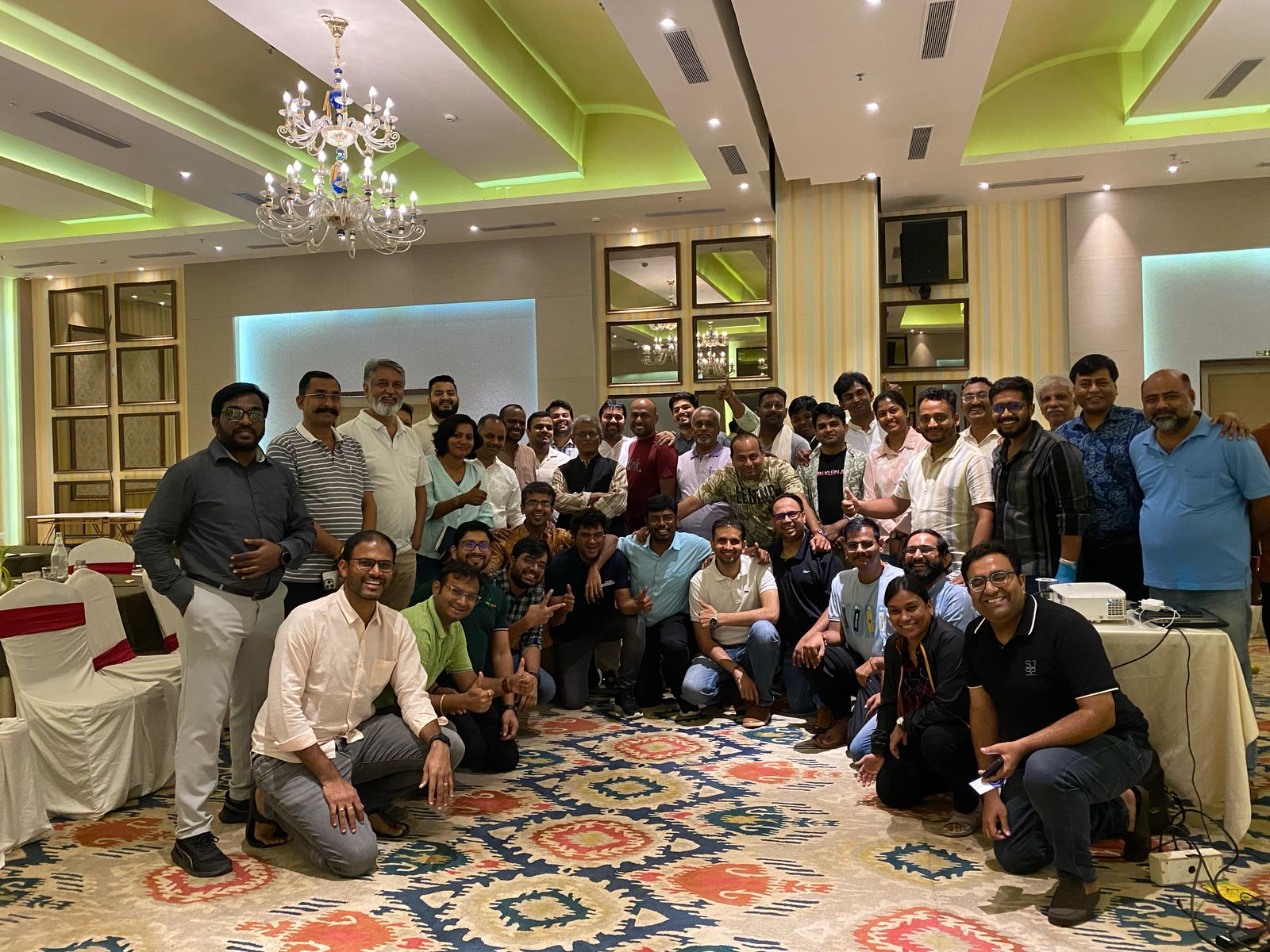
Online data says that there could be around 3000 - 5000 agritech start-ups in the country (another important data that we don’t know with certainty). They have attracted a paltry $2 billion USD as investment in the past 5 yrs between them and about 70% agritech startups in India shut down within a few years (estimate 1000 shutting down each year). So, I was with 1% agritech startup in the country that are probably part of the better 20% that’s still survived.
Types of AgriTechs
The participant agritech profile fitted with the existing broad categories of AgriTech companies in the country (given below).
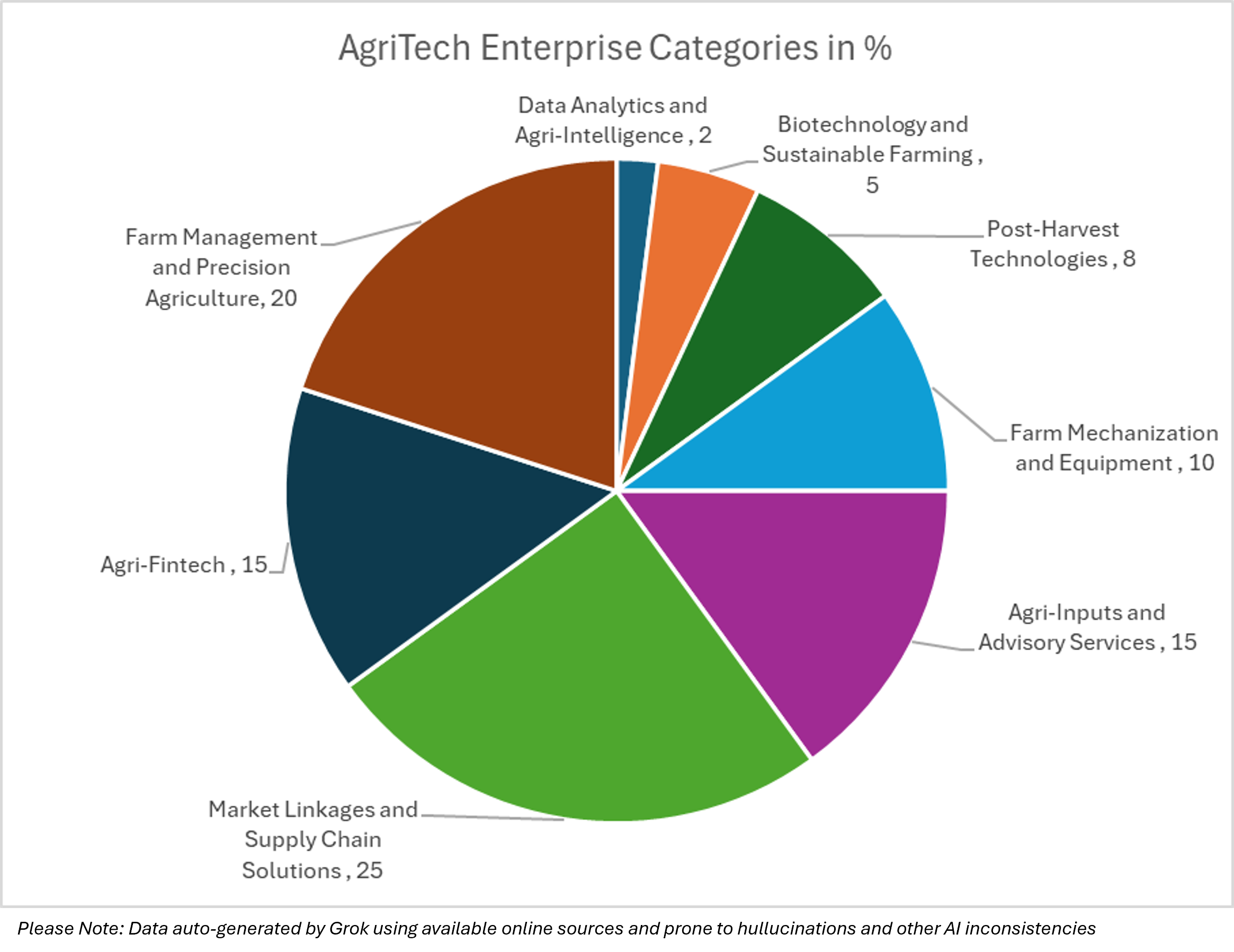
Some businesses were plain opportunistic, many technically feasible but unsustainable in Indian context, for me at least, some sounded outlandish, there were those that were ‘’solving’’ a complex organization of a situation by simplifying the organization but not addressing any pain points; there were people ambitiously trying to do what the government ought to be doing and bemoaning why they were not attracting adequate investments. There were entrepreneurs who had come out of others and started their own, there were those who emerged from NGO space and even activist background, there was even an academician scouting for ideas during the retreat. Obviously, the understanding, convictions, objective and goals were rather diverse.
Everyone had a negative experience with either the government or investing ecosystem or both. For me one of the big takeaway was the positive outlook towards government schemes and formal banks despite their horrible experiences; many stated that there was a need to engage with these as ultimately many schemes were designed to facilitate entrepreneurs. However, the frequent challenge was the subjective, egotistic, ignorant officials they have to deal with on the one side and the corrupt politicians and bureaucrats they had to deal with in the other. One feels the pain of mediocre bureaucracy and corrupt ecosystem most when talking with entrepreneurs.
The Session
To engage with them on ethics as a dialogue was an interesting experience. Majority of them started with the personal rather than business ethics. In fact, with the landmine of data centric transgressions possible, allusion to that aspect of business was insignificant.
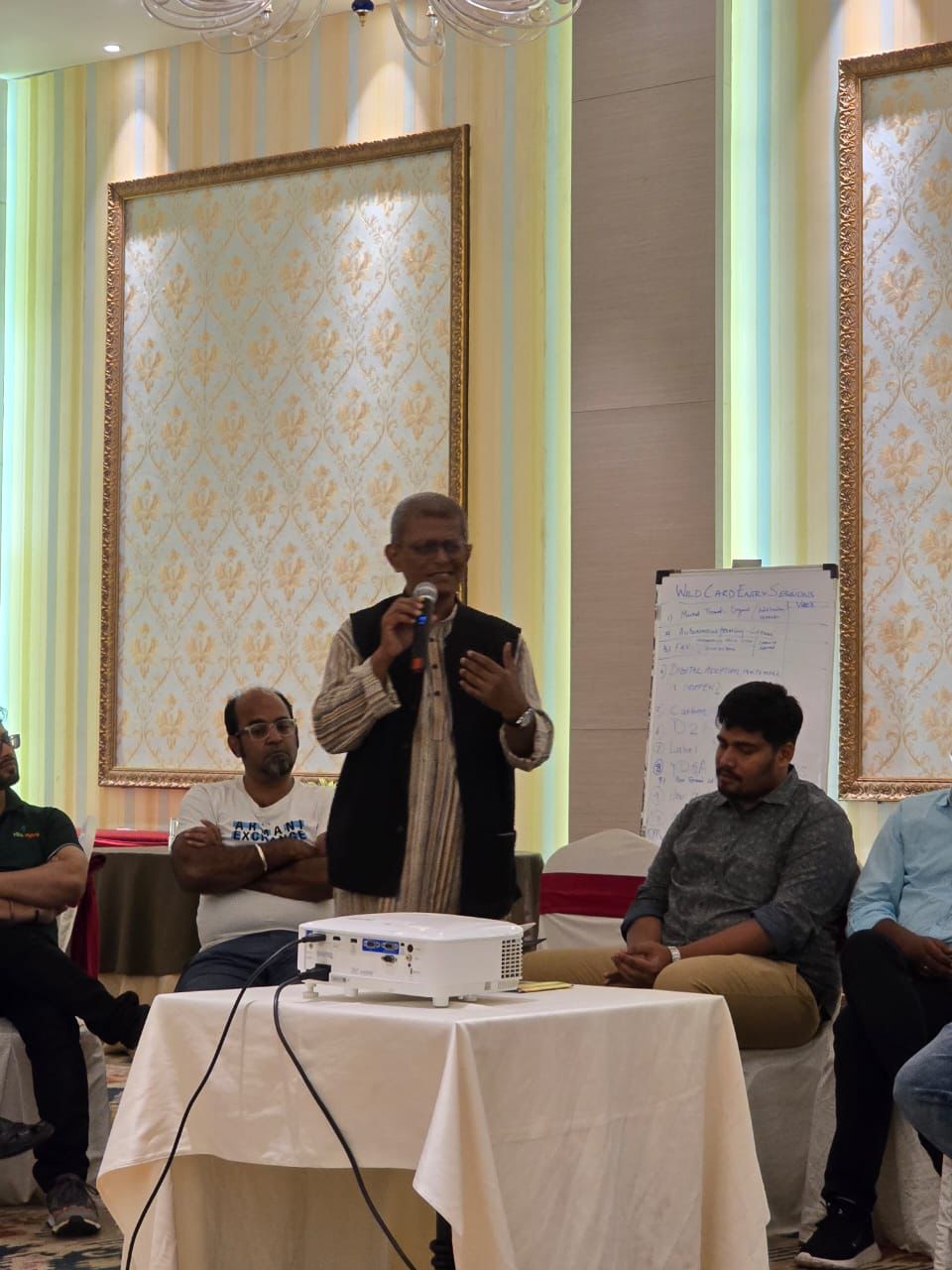
The ethical dilemmas that they encounter were highest with the systemic injustice of various kinds, particularly the immature investor ecosystem that we have in India.
The second largest number of ethical challenges are in the personal life of the individuals and their own values and ethics that are challenged every day.
The transactional ones are important, but most do not express them with much clarity.
It was a good sign that many hadn’t achieved the privileged class indifference to corruption though most admitted to sometimes being forced to submit to the same with with government (and private sector).
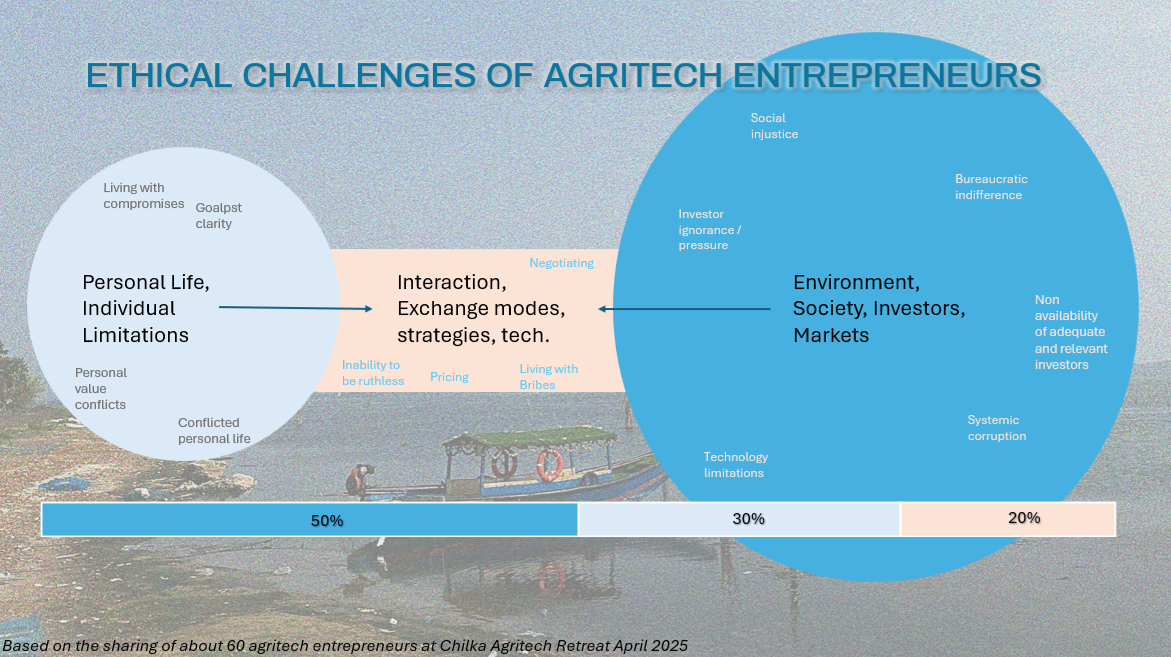
I would hesitate to categorize all of the points made as Ethical dilemmas, some of them fall under entrepreneur challenges common to many, domain knowledge, technology and managerial limitations, etc.,. What was most promising for me were the deep sense of conviction I saw with many of the entrepreneurs. There are here to stay and make an impact. I see many of them with potential to emerge as societal leaders, with concerns beyond their immediate enterprise boundaries already casting a deep shadow in their thoughts and actions.
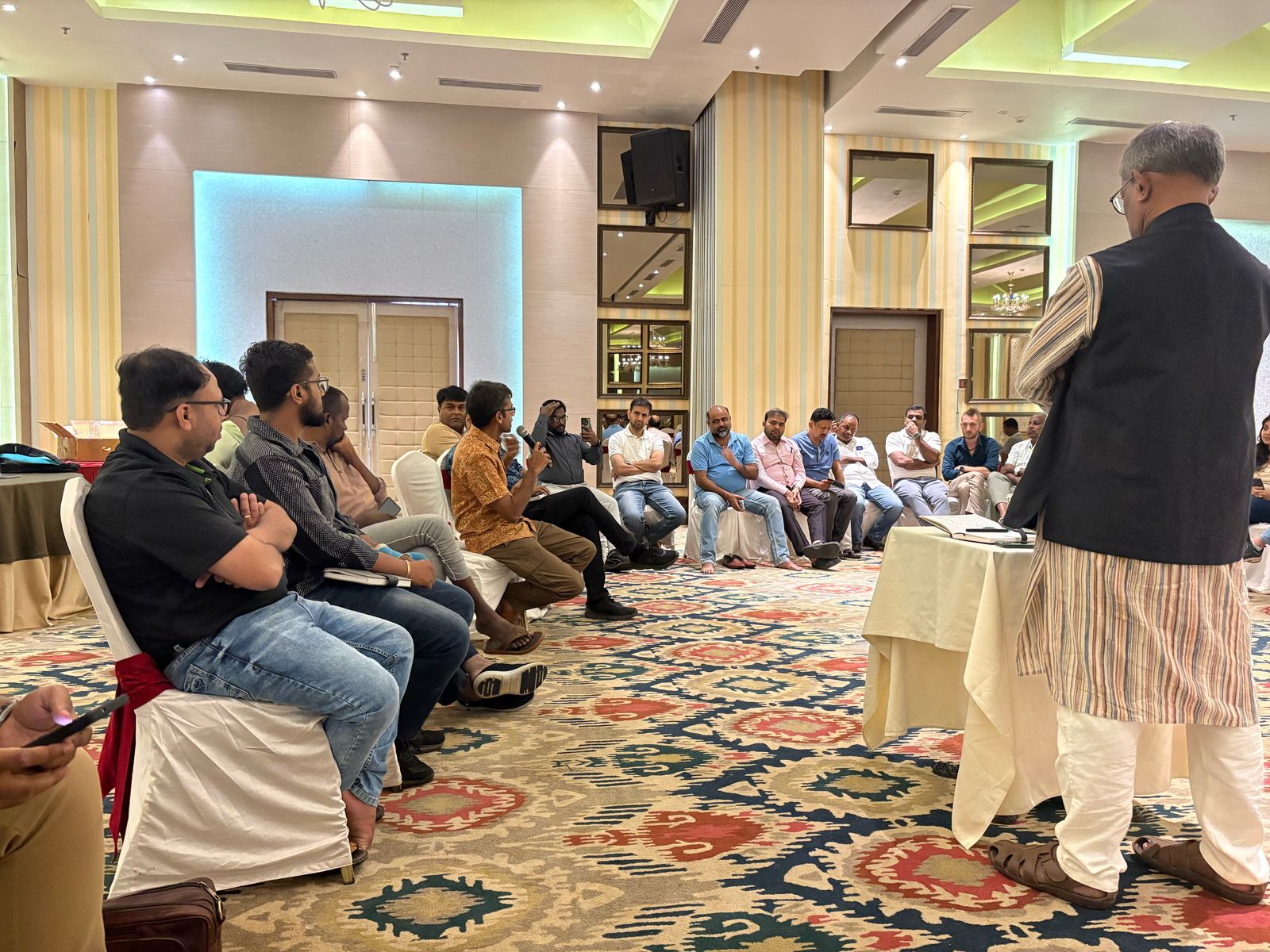
Some of the most insightful articulation of the ethical challenges faced by the agritech entrepreneurs (this is a small subset of what was expressed)–
- Goal Setting: “Majority of our people never define their North Star, this is a serious lacuna, then we become easy prey to drift any which way the industry blows us””.
- Conflicted personal life: “When I was not an entrepreneur, I adhered to truth, being one now I am forced to lie. I now lie with my spouse as well and that is not a great feeling, I am constantly living with that guilt”. Another voice highlighted this further, "I had to close my startup to rescue my marriage".
- Ruthlessness: “How to be ruthless in business when it does not come naturally for us to be so!”.
- Green Value: “I decided that packaging in plastic was for us a boundary we will not cross. I could have grown exponentially if only I had adopted plastic packaging like the rest of my competition. It is an impediment that affects our scaling today”.
- Social Injustice: “It affects me that a farmer toiling for 4 months gets to make 20% profit (if at all) for her efforts and me as a trader dealing with the commodity sometimes for just 4 hours can make 200% on the same”.
- Marketing Strategies: “Many times we are forced to promise a customer something that we do not have ready as yet (because we badly want that customer), it is difficult to maintain that”.
- Unaffordability: “The farmers whom I want to serve with the technology services, who will benefit the most, cannot be the ones to sponsor me. They do not have the money to afford me and those who invest, want me to work not for the benefit of these farmers”.
- Bribery: “I have lost business because I am not tuned to catching the hits on bribe by government officials. I do not regret catching it tough, but, it feels bad that we have to constantly face this”.
- Limitations of Eco-System: “Tech knowledge teaches, one to be transitionary rather than achieve definite goals. We are bound by that”. “The entire ecosystem is unjust, to survive one is expected to join these”. “With the way the political and social changes are happening in north India, where can one see hope? The hate from divisive politics spills over into other parts of society and economy and will incidentally affect each one of us”. “I find it unfair when there are people with extra money to burn and beat the competition out of the market, while we struggle to survive”.
- Tackling the Investor: “I almost signed the paper, I knew that the deal was unjust, we needed the investment, my staff too was happy. But only I knew that we will compromise our objective. I said ‘no’ and don’t resent it today”. “After much going around, one insight is, it is better to not go to any form of investor, government schemes are far better structured, though difficult to access”. “When we don’t compromise on our values for the investments, eventually we do attract the right kind of investor. It is good to have the clarity on the values”.
Knowledge Gaps
If one were to place this within the matrix of the existing understanding of AgriTech industrial ethics based on existing academic and journalistic materials that are available online, one would recognize the gap between the reality and what is written about.
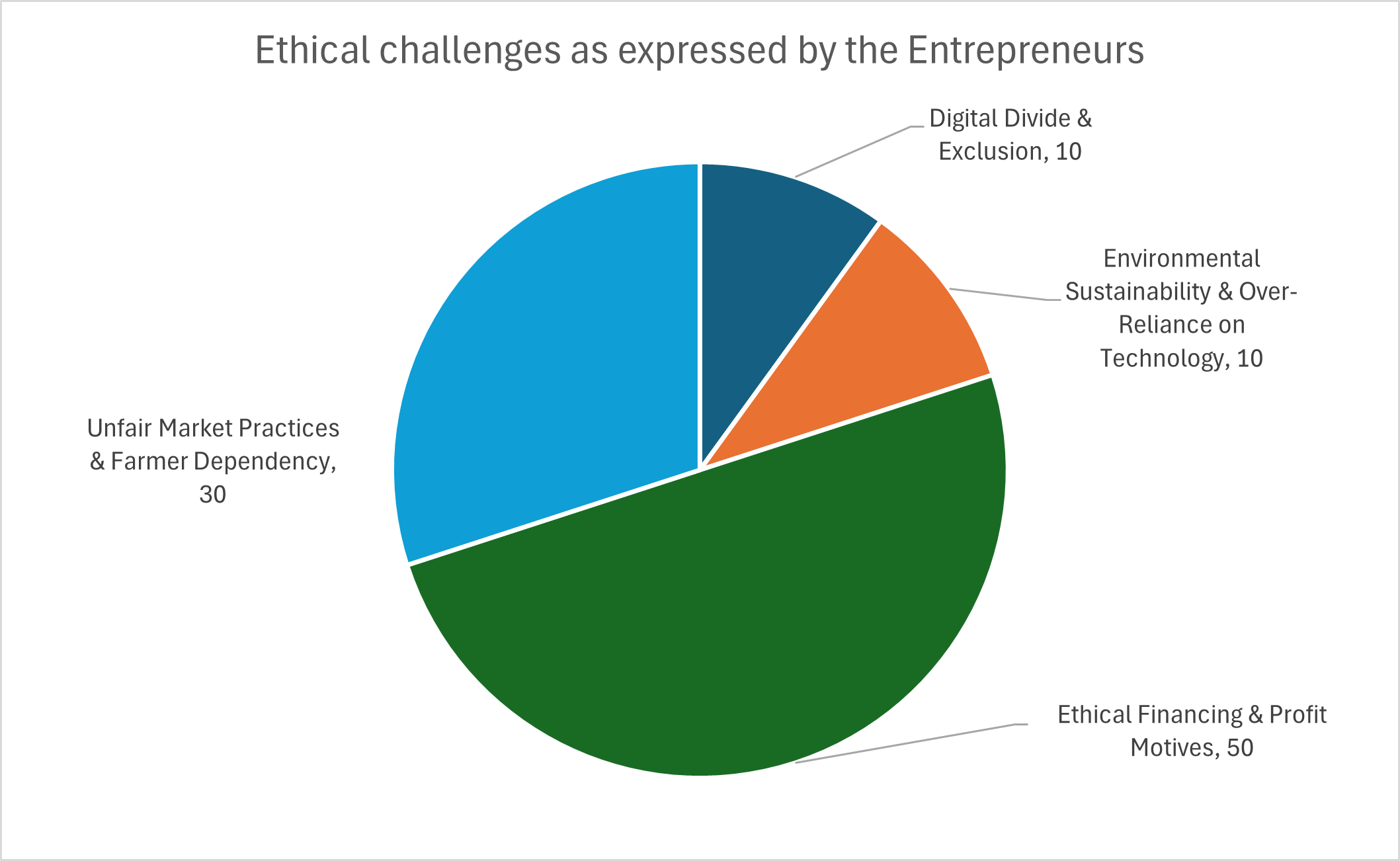
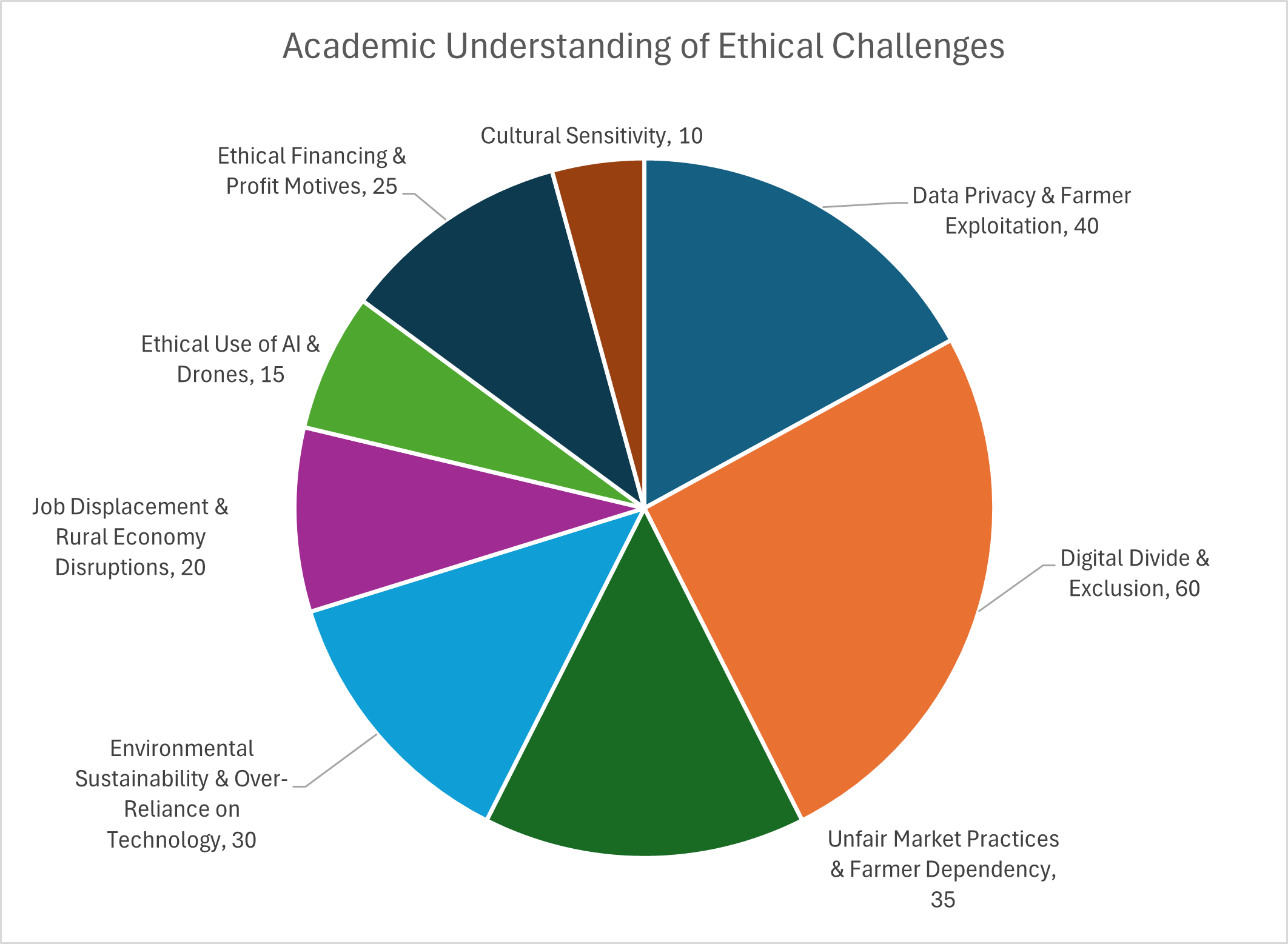
The first graph is generated based on available online data by AI (Grok) as on April 2025, whereas the second graph is based on a broad categorization of the various ethical challenges (some of them are given below) that were expressed by the Agritech startups during the retreat. While not talking about the jobs they are displacing and data privacy as concerns by the entrepreneurs is to be expected and the cultural insensitivity is a given (the lack of Humanities influence in the tech start-up world is a common challenge all over India today. I will write about it at length at some point) considering their lack of orientation on culture, what was surprising was the inability of existing academic / research to capture the digital divide not being an issue according to the entrepreneur or the even more large gap on the lack of ethics among the financiars. The digital divide can be explained away stating that perhaps majority of the entrepreneurs are working with better digital penetrated regions of the country, but,
the lack of ethical financing and the pressure of the investors to drive profits at all costs to make short term gains indicates a deep malaise in the ecosystem today.
It fact that is my biggest take away from this retreat. Last fall, I had spoken about the immaturity of the investors to design the appropriate financial instruments for indigenous entrepreneur ecosystem while talking in the SOCAP annual gathering (my talk and notes are yet to be made into a seperate article) of investors in California. While entrepreneurs will always adopt to the market reality and growth, the investors continue to live in a bubble of their own making where they manipulate the prevailing landscape across multiple sectors today. Unless there are bold investor moves to redesign, I see a future only service providers for large profit centres being promoted through investments and local, regional, smaller and medium players unable to operate at all in this landscape.
The People
Venky: A word about the organization of the retreat - Currently over-hyped impact seekers are given to theatrics, provocative, disruptive, or outright frivolous behaviour, shaped by media and adulation. Among struggling entrepreneurs there is the additional attraction of ‘money talk’ which always has everyone eared up. Venky wanting to start with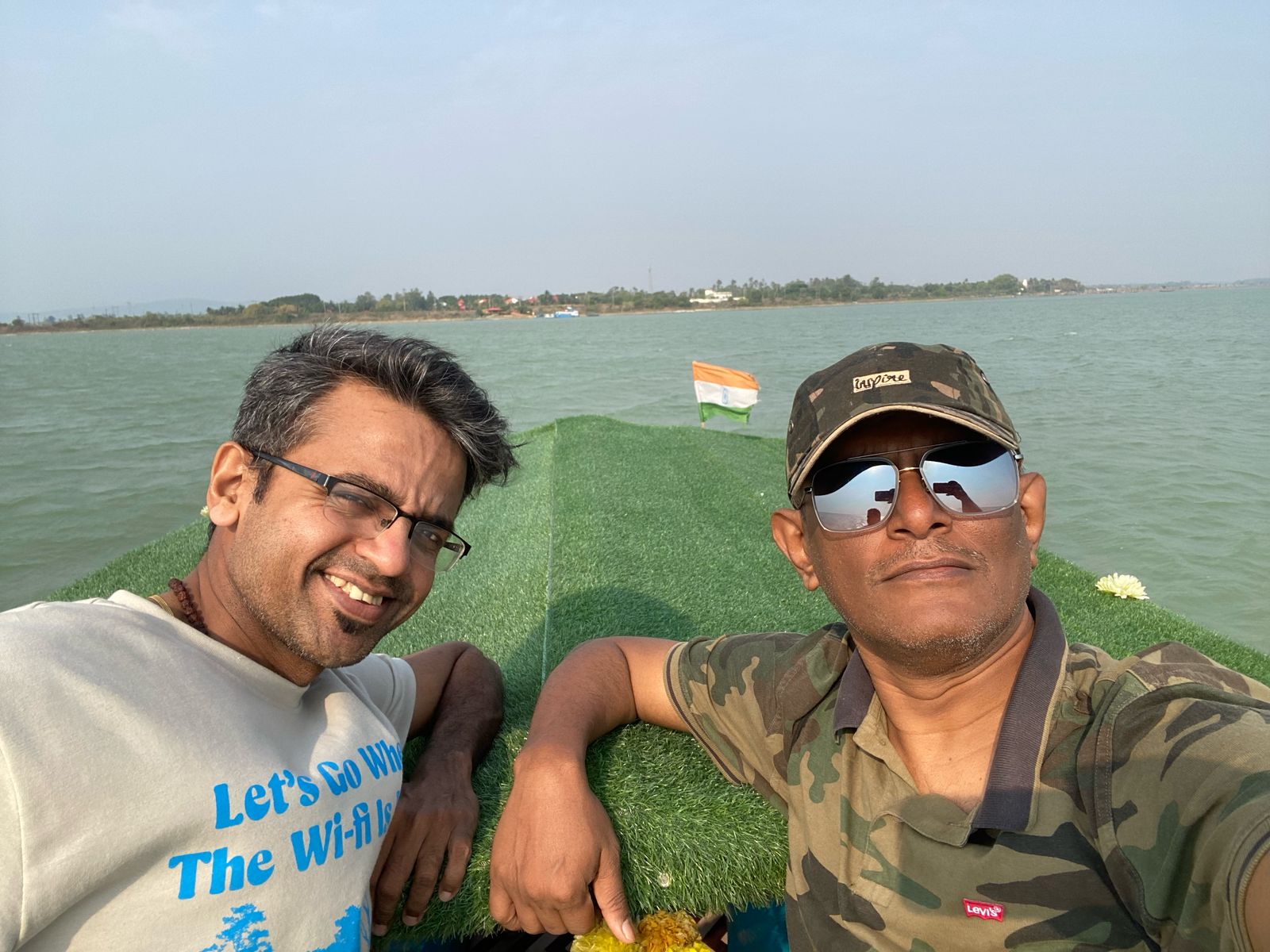 a session on Ethics was for me a surprise. It showed his deep convictions, he clearly told me that it was not meant to be a lecture and we need to create dialogue around it and I was happy to follow his advise and keep my own observations to very broad ones. He was right, because the day started with this, it had its impact in every subsequent session where people looped back to the session on Ethics and what was discussed when something tricky was being articulated.
a session on Ethics was for me a surprise. It showed his deep convictions, he clearly told me that it was not meant to be a lecture and we need to create dialogue around it and I was happy to follow his advise and keep my own observations to very broad ones. He was right, because the day started with this, it had its impact in every subsequent session where people looped back to the session on Ethics and what was discussed when something tricky was being articulated.
Venky also facilitated the entire retreat. He brings a freshness to their views and a non-judgemental poise that is extremely important for any facilitator. He had been actively engaged as first a participant of the Hind Swaraj cohort and subsequently as part of the series of dialogues on AI and Ethics that we had organized in 2024. His reflective piece on his own work at the end of this retreat given an insight into his own work.
AgriTech Entrepreneurs from Tamil Nadu
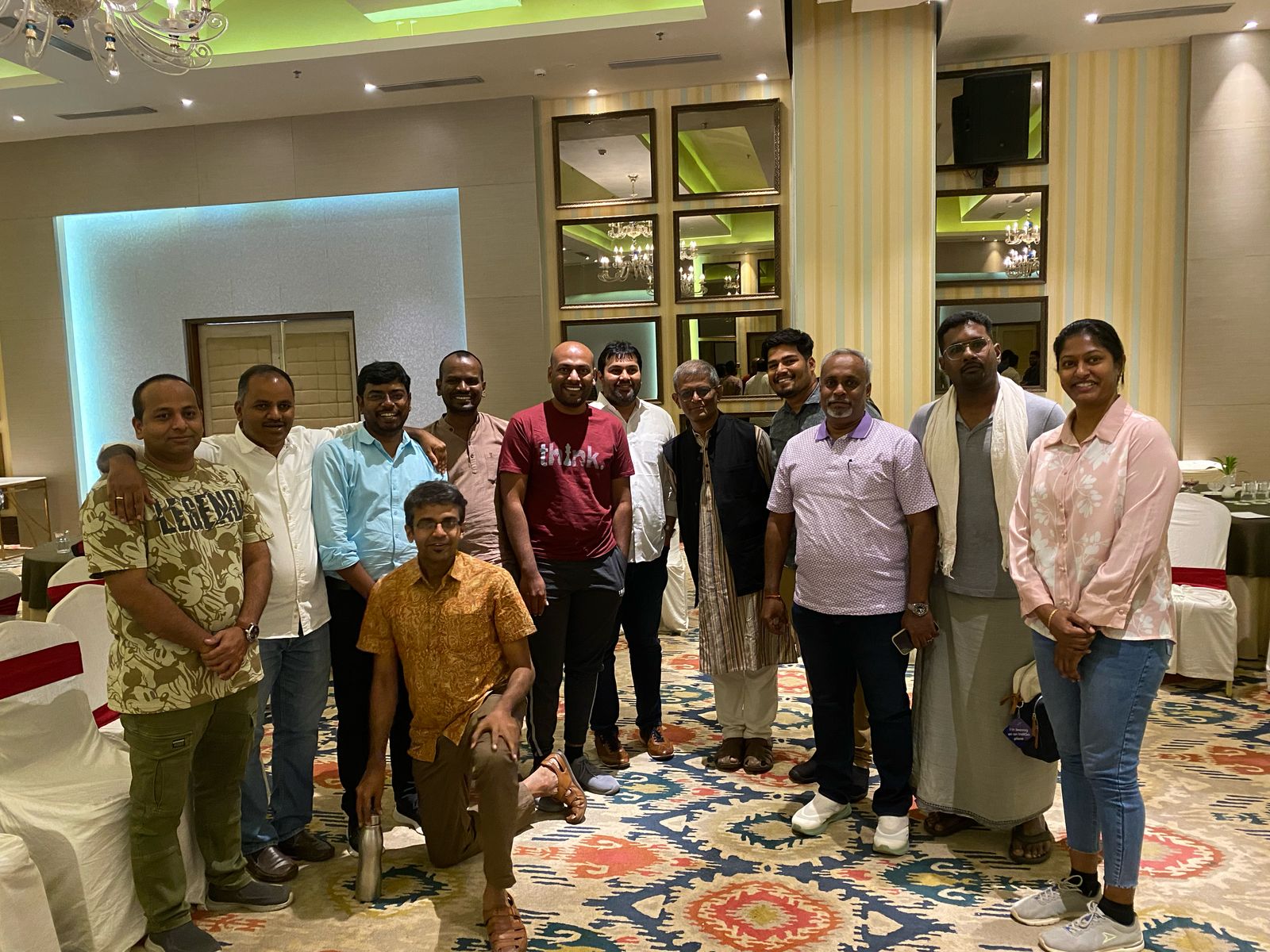
It was a pleasant surprise for me to meet nearly 15 participants from my own state of Tamil Nadu. Having attended FPO national programmed dominated by Telugu speaking folks and government national gatherings with Hindi dominated participants, it was good to hear my local language in Odisha with so many people from rather diverse AgriTech backgrounds participating.
Apart from the language that united everyone, there was another factor that seemed to be common to majority of the Tamil Nadu participants - they were mostly working towards sustainable solutions and have all been touched by the work and ideas of Nammalvar at some point in time.
Among them were one of my current heroes Vetrivel Palani, 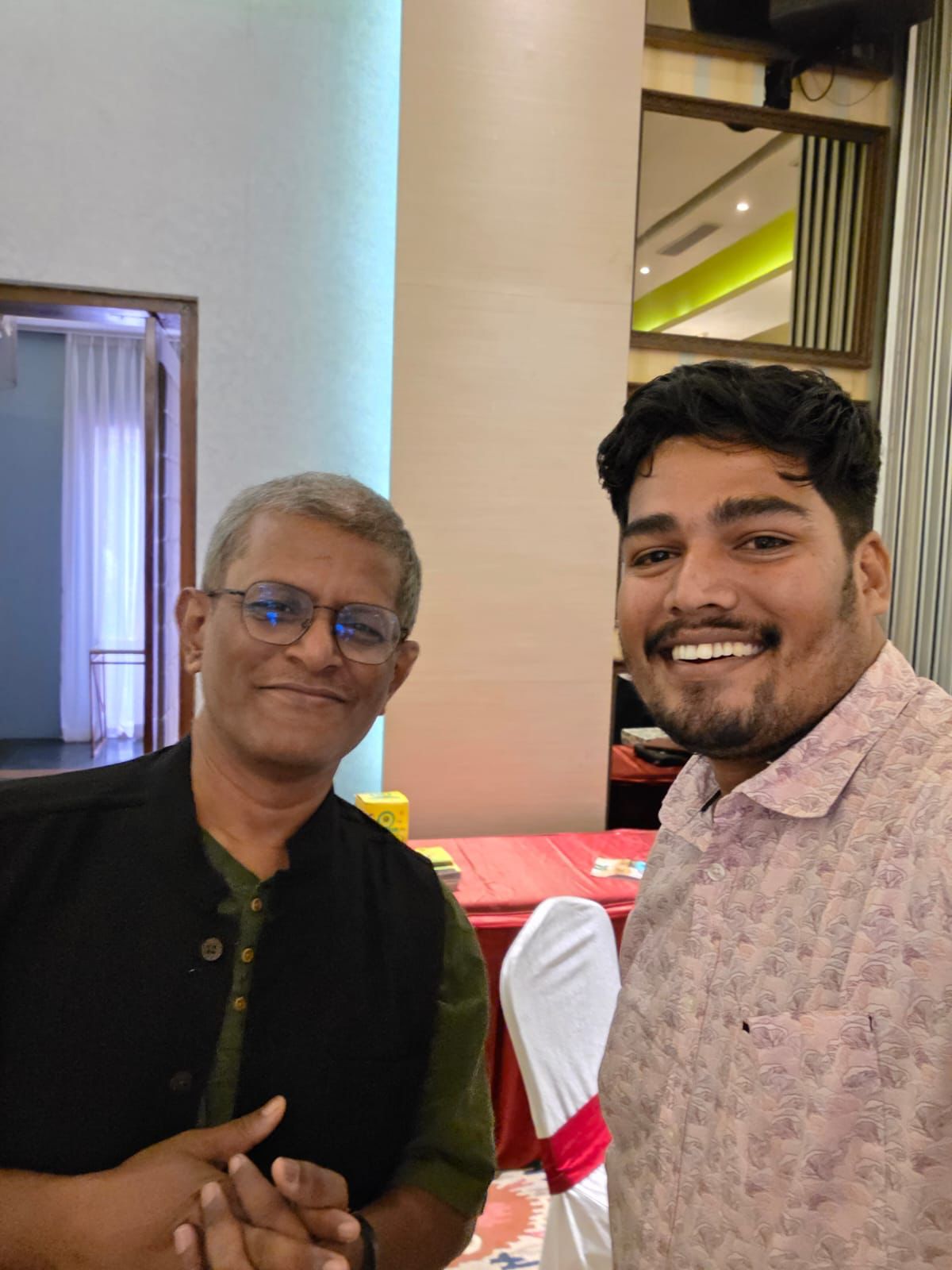 of Uzhavar Bhoomi, today the largest fresh milk supplier in the country. Apart from bringing a deep conviction to the gathering and steadfastness apart from tech efficiency of a very high order, personally, I am his customer and enjoy the benefit of his bottled milk delivered at home every morning since nearly a year now. I will write in detail about him at some future date. Among the new friends from Tamil Nadu I made during the retreat are Chollin Selvan (eSandhai) who carries an infectious entrepreneurial energy and deep insightful questioning nature.
of Uzhavar Bhoomi, today the largest fresh milk supplier in the country. Apart from bringing a deep conviction to the gathering and steadfastness apart from tech efficiency of a very high order, personally, I am his customer and enjoy the benefit of his bottled milk delivered at home every morning since nearly a year now. I will write in detail about him at some future date. Among the new friends from Tamil Nadu I made during the retreat are Chollin Selvan (eSandhai) who carries an infectious entrepreneurial energy and deep insightful questioning nature.
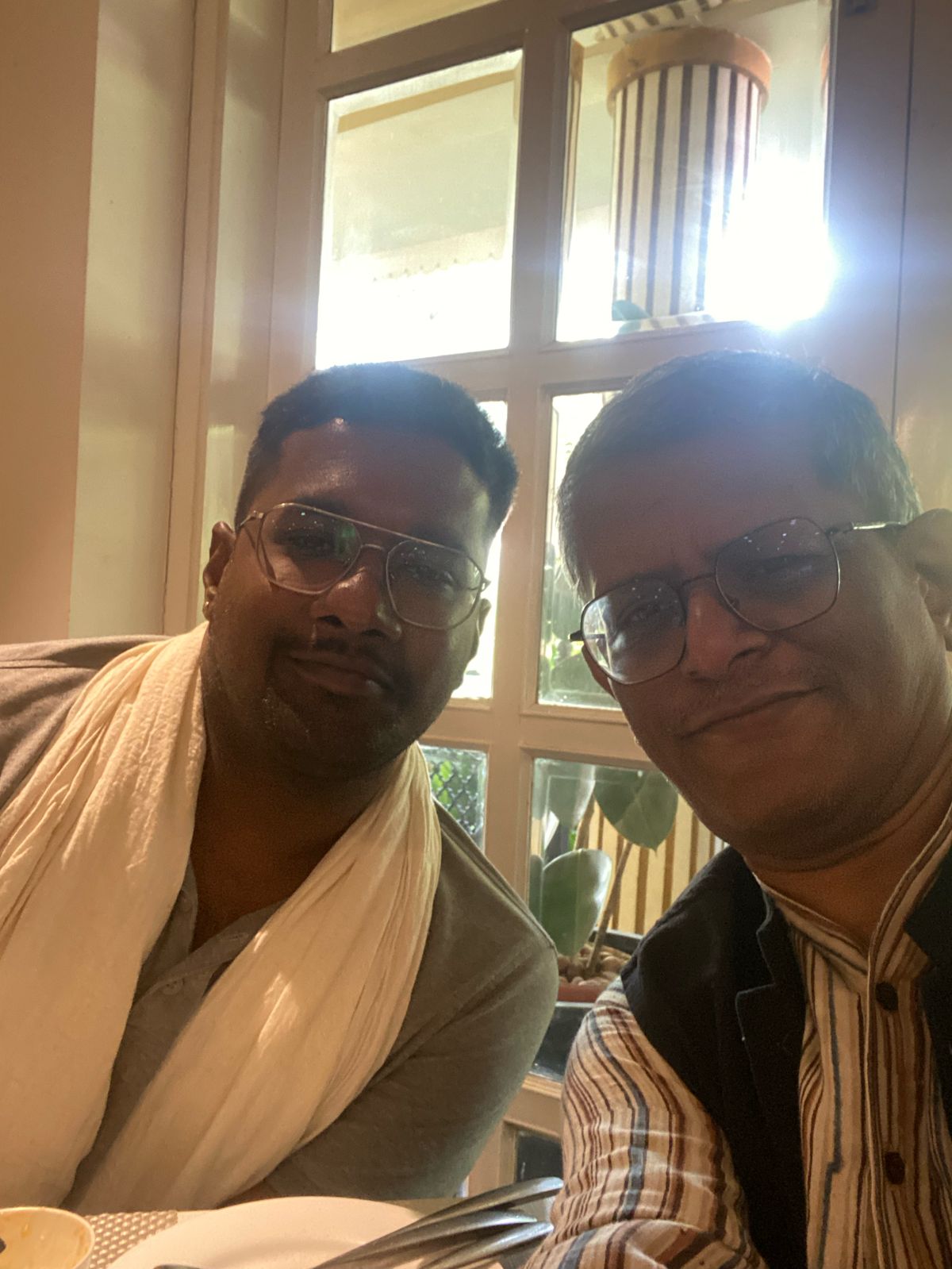
Another personally satisfying moment was to watch my younger friend since over a decade now, Dinesh in a new avatar as part of an organizing team of an event like this. I have known Dinesh from the time he started the journey with the organic food retailing through his enterprise close to Auroville and watched him grow from a small unit, through his several struggles and building up his business and diversifying the same. I have seen him always carry heavy bags of commodities, vegetable laden delivery vans, etc., and non stop attending to calls from customers and vendors. It was a change for me to watch him walk around with laptop all the time during the retreat.